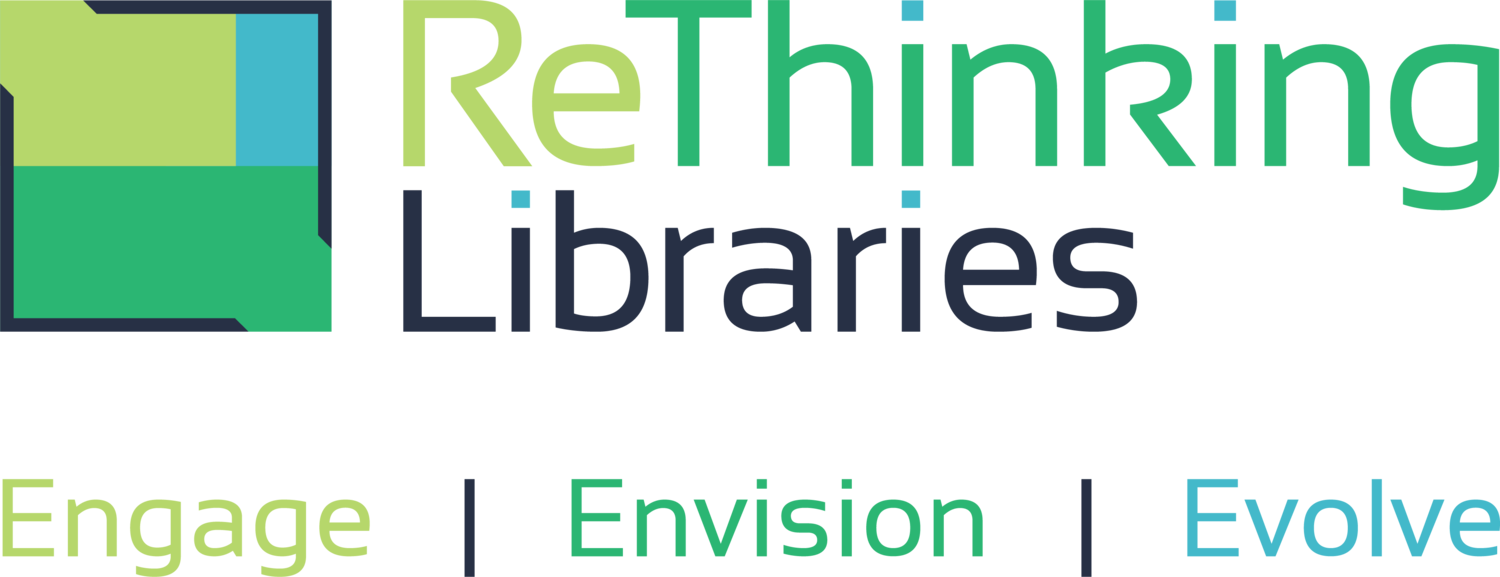Championing the Library: Supporters Pass a Referendum to Keep Their Library Open
Great Falls (MT) Public Library (GFPL) was struggling with a fundamental challenge common to many libraries: lack of funding. Since enduring budget cuts in 2014, the library grappled with the strain of providing essential services while operating well below the Montana state average. Recognizing the urgency of the situation, GFPL partnered with ReThinking Libraries and MMW Architects to conduct a thorough analysis of its operations, staffing, and capital needs.
At the helm of this transformative journey is Susie McIntyre, the Library Director who has persevered through threats and challenges. In a recent interview, McIntyre shed light on the trials and triumphs that have defined the Library's trajectory.
Laying the Groundwork
The most pressing challenge GFPL confronted was funding. Due to a funding reduction in 2014, the library was struggling to keep the doors open for the Montana State Library minimum of 50 hours per week (for libraries of their size). This financial strain hindered its ability to provide services, maintain facilities, and adequately support staff.
Working with ReThinking Libraries and MMW Architects, GFPL analyzed the existing landscape. The Library was severely underfunded, receiving $19 per capita compared to the Montana state average of $31 per capita. They surveyed the community, conducted focus groups, and analyzed staffing. The results provided the data to back up what the staff already knew: that the library drastically needed more funding to stay open and meet the needs of residents.
Now armed with a comprehensive master plan—a 213-page roadmap encompassing funding, staffing, services, and spaces—the library embarked on a journey of revitalization, starting with a referendum to increase the levy from 2 mills to 17 mills.
Gaining Support
During the levy campaign, the library faced opposition from a local conservative group called Liberty and Values MT, advocating against vital funding with inflammatory rhetoric. The group paid for billboards that said “No drag queens. No porn. No tax increase.” The group also petitioned the city commission to demand that McIntyre be fired.
Even the election itself was a challenge. It came to the library’s attention that county elections office volunteers were distributing anti-library materials while on duty in the election office. The library board was forced to hire an attorney to file for an injunction to ensure the election was conducted correctly. As a result of the suit, the court appointed an impartial monitor for the election.
Despite these challenges, the library rallied its champions—community members, GFPL’s Friends of the Library, Great Falls Public Library Foundation, and board members—who stepped forward to write postcards, make phone calls, send texts, and knock on doors. As a result of two years of groundwork, they secured a crucial victory with a narrow 52% approval rate. Their success was highlighted in American Libraries magazine’s Referenda Roundup in January 2024, in an article entitled “A Master Plan Pays Off.”
The successful passing of the levy in June 2023 will generate roughly $1.2 million additional funding annually, and marks a turning point, enabling the implementation of strategic initiatives outlined in the master plan.
Delivering on Promises
Once the referendum passed, the staff felt strongly committed to implementing what they had promised. Their master plan includes an implementation plan and a set of robust SMART goals, such as increased circulation and visits. The staff strongly feels the need to show the community the value their investment is making.
McIntyre speaks with pride about the tangible impact of these initiatives. With increased funding, the Library will be able to expand its operating hours to seven days a week starting this month. Expanding bookmobile staffing will allow them to offer service six days a week instead of four. They’ve doubled youth services staffing, hired a dedicated community engagement staffer, and added two safety specialists to ensure all patrons feel welcome and secure. Overall, McIntyre plans to move from 18 to 35 employees by the end of 2024.
On the infrastructure front, the Library is poised for a transformative makeover. The current building is 56 years old with wood paneling that McIntyre refers to as “1960s groovy.” GFPL has been forced to defer maintenance due to lack of funds, so the building needs a complete remodel of spaces: upgrading bathrooms to ADA compatibility, fixing the elevator, replacing an HVAC air handler, and modernizing electrical systems.
Collaborating with the board, architectural and engineering firms, and community stakeholders, plans for a comprehensive renovation are underway. From modernizing to addressing long-overdue maintenance, these efforts will breathe new life into a beloved institution. The GFPL Foundation has already raised over $1 million toward the $14 million project.
Central to the library's success was having a master plan that provided invaluable insights and validation. By leveraging data from surveys, staffing analyses, and focus groups, the Library gained a deeper understanding of community needs and aspirations. This informed decision-making process fostered trust and transparency—a cornerstone of effective governance.
Reflecting on the journey, McIntyre underscores the collective effort that propelled the Library forward. From tireless volunteers canvassing neighborhoods to the unwavering support of the board, each contribution has been instrumental. As GFPL looks towards the future, McIntyre remains committed to delivering on promises made to the community—measurable outcomes that showcase the value of their investment.
GFPL is not unlike many libraries across the country, struggling with tight funding to stretch the dollars, deferring maintenance to cover staff salaries and keep the doors open. While their referendum campaign had its share of opposition and negativity, GFPL’s community of library champions persevered, ultimately creating a better future for the library and the residents they serve.



